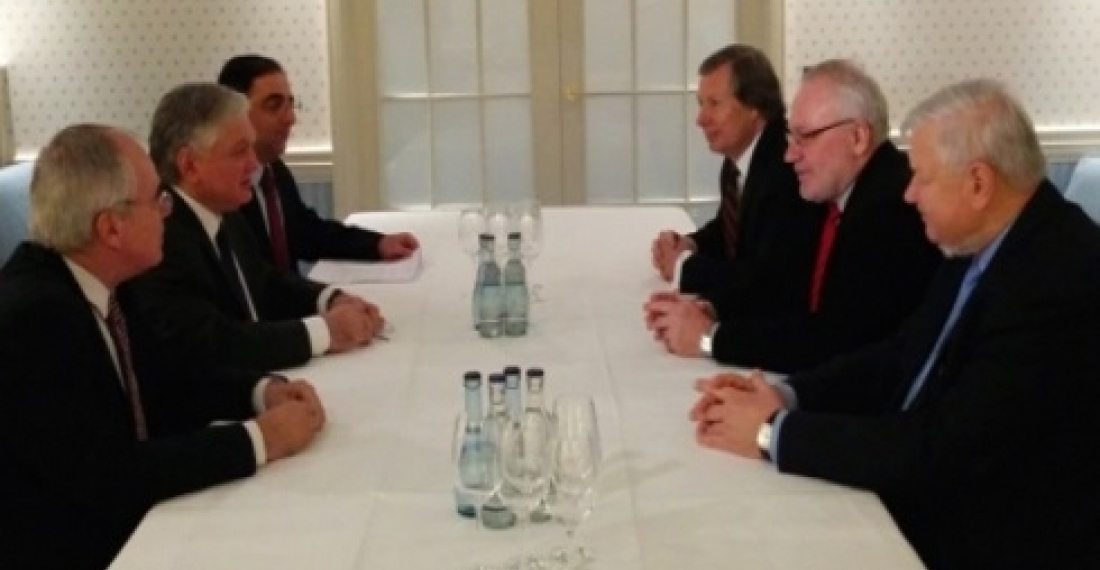International efforts at trying to re-start negotiations for the resolution of the conflict between Armenia and Azerbaijan continued in Munich yesterday when the three co-Chair of the OSCE Minsk Process met with the Armenian Foreign Minister, Edward Nalbandian, on the margins of the Munich Security Conference. In a statement issued through the Press Service of the Organisation for Security and Co-operation in Europe (OSCE) Ambassadors Igor Popov of the Russian Federation, James Warlick of the United States of America, and Pierre Andrieu of France said:
"We noted with alarm the rising number of incidents along the Line of Contact and Armenia-Azerbaijan border, including in civilian areas. We also discussed with the Minister proposed measures to reduce the likelihood of such incidents. In particular, it is imperative for the sides to take steps to prevent a repeat of the November 12 helicopter downing.
The violence and tensions between the sides underscore the necessity of starting comprehensive negotiations as soon as possible to reach a lasting settlement. We urged the Minister to show more flexibility so such negotiations can begin.
We raised the importance of implementing the Presidents' agreement now to exchange data on missing persons under the aegis of the ICRC. This data exchange can build trust between the sides and facilitate the reconciliation process.
In addition, we called for the resumption of presidential dialogue at the earliest opportunity."
Commonspace.eu political editor said in a comment that "the statement reflected increasing frustration in the international community at the failure of the sides to engage positively in the efforts to resolve the conflict peacefully, and concern that the on-going violence on the line of contact will spiral out of control. With both sides reporting daily casualties, and with the number of civilian deaths also increasing there is pressure for serious talks to resume. The co-Chair will travel to the region later this month to meet the two Presidents. However no face to face meetings are yet on the horizon either at the level of Presidents or of Foreign Ministers. The tone of the statement of the co-Chair after their meeting with the Armenian Foreign Minister was more blunt than usual, and in line with a similar statement issued on 26 January when the co-Chair met the Foreign Minister of Azerbaijan in Poland. At the moment the mediators have few tools at their disposal except diplomatic persistence. We are not yet seeing diplomatic arms twisting, but the handshakes are getting a bit rougher."
source: commonspace.eu
photo: The Foreign Minister of Armenia Edward Nalbandian meeting the co-Chair of the OSCE Minsk Process in Munich on 6 February 2015. (Picture courtesy of the Press Office of the Ministry of Foreign Affairs of Armenia).







